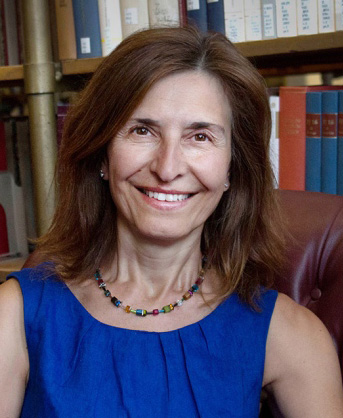The next 25 years: arXiv looks to the future
By Bill Steele
As the arXiv repository of scientific papers celebrates its 25th year as one of the scientific community’s most important means of communication, the site’s leadership is looking ahead to ensure it remains indispensable, robust and financially sustainable.
Changes and improvements are in store, many in response to suggestions received in a survey of nearly 37,000 users whose primary requests were for a more robust search engine and better facilities to share supplementary material, such as slides or code, that often accompanies scientific papers.

But even more important is to upgrade the underlying architecture of the system, much of it based on “old code,” said Oya Rieger, associate university librarian for digital scholarship and preservation services, who serves as arXiv’s program director. “We have to create a work plan to ensure that arXiv will serve for another 25 years,” she said. That will require recruiting additional programmers and finding additional sources of funding, she added.
The improvements will not change the site’s essential format or its core mission of free and open dissemination of the latest scientific research, Rieger said.
arXiv was created in 1991 by Paul Ginsparg, professor of physics and information science, when he was working at Los Alamos National Laboratory. It was then common practice for researchers to circulate “pre-prints” of their papers so that colleagues could have the advantage of knowing about their research in advance of publication in scientific journals. Ginsparg launched a service (originally running from a computer under his desk) to make the papers instantly available online.
Ginsparg brought the arXiv with him from Los Alamos when he joined the Cornell faculty in 2001. Since then, it has been managed by Cornell University Library, with Ginsparg as a member of its scientific advisory board.
In 2015, arXiv celebrated its millionth submission and saw 139 million downloads in that year alone.
Nearly 95 percent of respondents to the survey said they were satisfied with arXiv, many saying that rapid access to research results had made a difference in their careers, and applauding it as an advance in open access.
“We were amazed and heartened by the outpouring of responses representing users from a variety of countries, age groups and career stages. Their insight will help us as we refine a compelling and coherent vision for arXiv’s future,” Rieger said. “We’re continuing to explore current and emerging user needs and priorities. We hope to secure funding to revamp the service’s infrastructure and ensure that it will continue to serve as an important scientific venue for facilitating rapid dissemination of papers, which is arXiv’s core goal.”
Though some users suggested new or additional features, a majority of respondents emphasized that the clean, unencumbered nature of the site makes its use easy and efficient. “I sincerely wish academic journals could try to emulate the cleanness, convenience and user-friendly nature of the arXiv, and I hope the future of academic publishing looks more like what we’ve been able to enjoy in the arXiv,” one user wrote.
arXiv is supported by a global collective of nearly 200 libraries in 24 countries, and an ongoing grant from the Simons Foundation. In 2012, the site adopted a new funding model, in which it is collaboratively governed and supported by the research communities and institutions that benefit from it most directly.
Media Contact
Get Cornell news delivered right to your inbox.
Subscribe